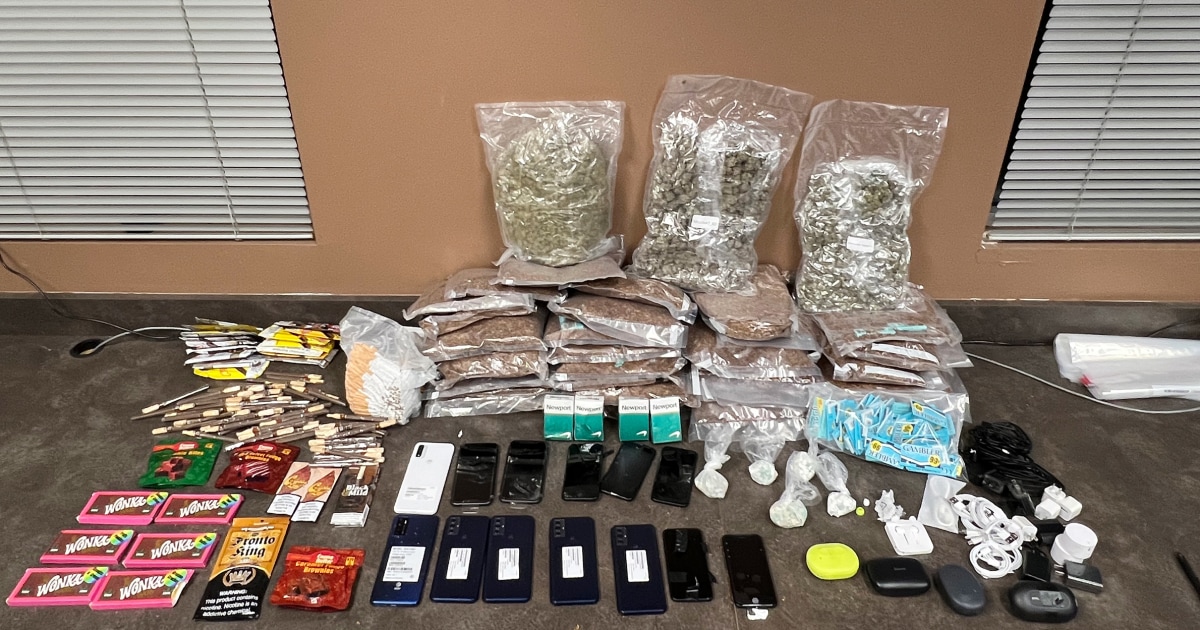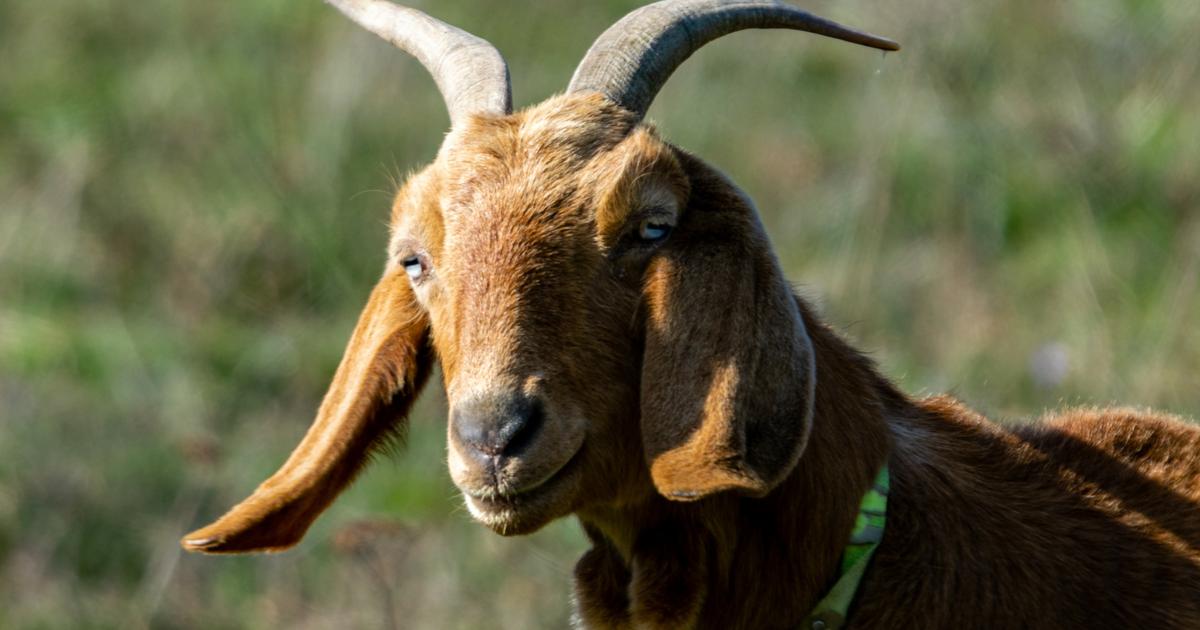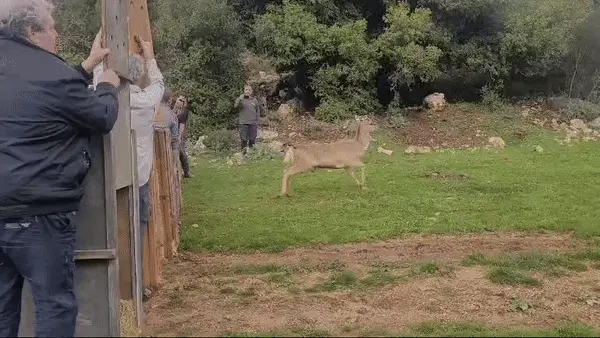SAN FELIPE, Baja California Sur.— Pedro stared at the fire of the campfire, the lively reflection of the flames lit up his eyes as he talked about what he likes most in life: being in the sea.
"It's a life cycle, that is, we have to fish it to improve one's economy and for the town's economy to improve. One doesn't do it for fun, or for sport, it's out of necessity," he says discouraged when they ask him why he is dedicated to fishing for totoaba, a protected species in Mexico whose swim bladder is sold in Asia for thousands of dollars.
Sitting on the sand, with his back to the waves of the Sea of Cortez, Pedro recalls the poverty experienced by the fishermen of his town and the few job opportunities they have.
"Life here is fishing (...) on land you get a job and they give you social insurance for illnesses. Not here, here what you have insurance is the shit you're going to hit on top of the boat," he explains with sadness.
The vaquita porpoise could become extinct next year, warn specialists
Dec. 27, 202102:52
Pedro, a 32-year-old fisherman who spoke with Noticias Telemundo on the condition of anonymity, is one of the men who risk their lives, and their freedom, to capture the precious totoabas that, despite being protected by the authorities, They are endangered by overfishing off the coast of Baja California Sur in Mexico.
The swim bladder of the totoaba — better known as the 'buche' — is subjected to a drying process and, brought to China,
can cost between 45,000 and 60,000 dollars per kilo.
Sometimes it has been quoted at higher prices, depending on the scarcity caused by the overexploitation of the fish, so that in clandestine auctions the bladders could exceed 150,000 dollars.
Planet Earth: This is how they try to save the coveted and endangered sea cucumber in Mexico
July 15, 202202:33
Pedro remembers, with emotion, the only time he has managed to get a big enough crop to get a good price.
It was more than 8 years ago when he managed to capture a specimen of more than 40 kilos.
"I had a 1.8-kilo crop and I asked the buyer for $14,000," he explains while clarifying that constant fishing has meant that these specimens are hardly found in the area anymore because they don't usually grow big enough.
In the poaching of totoaba, wide and resistant nets are usually used, in which the vaquita marina, one of the smallest cetaceans in the world, also gets entangled.
According to a recent investigation by the International Union for the Conservation of Nature, there are only about eight specimens of this species endemic to Mexico.
Two specimens of vaquita marina in the Sea of Cortez. Ministry of Environment and Natural Resources of Mexico
Although the Mexican government has promoted initiatives for the protection of this animal, the indiscriminate fishing of totoaba has also decimated the vaquita population, bringing it to the threshold of extinction, with a population decline of more than 90% during the last decade, according to data. academic and official.
Pedro says he has never seen a vaquita in the 15 years he has been sailing non-stop through the sea near San Felipe.
He only knows them from photographs.
At first we were worried about the vaquita because they prohibited us from entering the sea"
Pedro FISHERMAN FROM TOTOABA
"At first we were concerned about the vaquita because they prohibited us from entering the sea and the port lives from fishing. But now we see it as something insignificant because we say that the government there hanged itself so as not to let us fish," he explains angrily.
A specimen of totoaba that was raised in captivity in the facilities of the Autonomous University of Baja California, Ensenada Campus. Ministry of Environment and Natural Resources of Mexico
"As fishermen we feel alone"
The reason for this fever for totoaba, which drives its poaching, is an old phenomenon well known in towns like San Felipe that, since the dawn of the 20th century, have witnessed the Asian market's desire for this protected endemic fish.
"San Felipe was born as a Totoabero town, it is not something that started 10 or 15 years ago (...) We are talking about the fact that since 1925 the Chinese were already coming and taking away the swim bladder," explains Francisco Sosa, a businessman from the region and member of a cooperative that grows totoaba and oysters.
The high demand boosted the fishing catches and, by 1942, the historical maximum of 2,261 tons was reached.
After that year, fishing fluctuated and in 1975 it reached its minimum record of 58 tons, according to official data collected by Datamares, a civil organization that analyzes and disseminates data on fishing in the country.
An establishment selling desiccated swim bladders in China. Earth League International
The illegal take of totoaba has been on the rise in recent years, and while it is difficult to quantify exactly how much totoaba has been taken illegally, researchers have made several attempts.
Although a permanent ban was imposed in 1975, researchers estimate that between 1979 and 1995, 70 tons had been illegally extracted.
According to an investigation by Inapesca, published in 2020, in 2017 alone, at least 760 tons of totoaba were captured illegally.
["The sea cucumber can be finished": warning about the overfishing of this species in Mexico]
Due to indiscriminate fishing, the Mexican government established a 225 square kilometer polygon, known as the Zero Tolerance Zone, where fishing and the access of any vessel are prohibited activities.
We have never been against protecting the environment, protecting the vaquita"
lorenzo garcia fisherman from san felipe
"We have never been against protecting the environment, protecting the vaquita. If there is anyone concerned about what is happening in the Upper Gulf, we are the ones who live here (...) but with so much prohibition, we no longer know what is going to happen." happen to us. Right now we are working for a legal protection that is protecting us to work, but we don't know if it will last," says Lorenzo García, president of the Federation of Cooperatives of Riverside Fishermen of San Felipe.
Faced with criticism from international organizations and the US government, the country's authorities recently presented a project to build a sea wall in a 12 x 24 kilometer polygon, where boats should not transit.
The initiative proposes to place 193 concrete blocks on the seabed, at a distance of 800 meters and one kilometer, to catch illegal nets.
"The exclusion zone is the most productive (...) when we fish we generate food for the country and it is exported to other parts, so I don't understand why we are so affected and I don't see anyone defending us. As fishermen we feel alone," Garcia comments on the measures.
Tons of dead fish appear in Jalisco and they say it was for tequila
Jan. 4, 202202:04
One of the "four treasures" of the Chinese
In China, the totoaba swim bladder is considered one of the "four treasures" of Chinese cuisine (the others are abalone, sea cucumber and shark fin, whose massive consumption has caused the crisis of their populations in most of the world) and is often prepared in soups and other dishes.
As it is usually insipid, its enormous value does not respond to its gastronomic qualities but lies in the fact that traditional Chinese medicine attributes beneficial effects to health.
"To understand the Chinese's fixation on totoaba, one must first understand their obsession with swim bladders in general. Traditional Chinese medicine believes that the swim bladder of a certain fish has a specific effect on health," explains Andrea Crosta , director of Earth League International (ELI), a US non-governmental organization that investigates wildlife crime and collaborates with federal agencies.
According to various ancient sources such as the Bencao Gangmu, a medical compendium written in 1578, the bladder helps restore patients'
qi
, a traditional Chinese medicine term that translates as "vital life force."
It is also a source of collagen which is believed to slow down aging.
Planet Earth: This is behind the 'red tide' that kills thousands of fish in Florida every year
Sept.
23, 202103:23
Crosta explains that, in both mainland China and Hong Kong, thousands of tons of fish swim bladders are imported from all over the world and 90% are legal by-products.
"A few years ago we launched a public report on the subject and obtained the data from Hong Kong customs. The funny thing was that Uganda was listed as the number one exporter of swim bladders, but that country is landlocked," he explains sarcastically. .
Mexico only appeared with a little over 24,000 kilos, a figure that, according to Crosta, is much lower than reality but it still stands out because totoaba fishing is restricted in the country.
[How the climate crisis makes us sicker: Floods, heat and drought compound the risk of nearly 220 infections]
Seizures of large numbers of bladders continue.
Earlier this month, the Chinese government released the results of the Qingfeng Action 2022, a multi-departmental law enforcement operation conducted from February 15 to May 15, 2022, which focused on illegal wildlife trade.
According to the authorities, 12,000 cases of crimes against wildlife were registered, capturing more than 14,000 criminals from 719 criminal gangs, and confiscating more than 130,000 specimens of wild animals and plants, among which 1,000 cases related to totoaba smuggling stand out. and other marine species.
In June 2020, Hong Kong authorities made the largest seizure in the last 20 years: 160 kilos of totoaba swim bladders that were hidden in 15 Styrofoam boxes from Los Angeles.
A fishmonger in Japan implements a method to report the details of the fish catch
Oct. 29, 202101:52
"Each bag carried an average of 18 pieces of totoaba bladders. Each piece weighs about 600 grams and is 1.5 meters long," Mark Woo Wai-kwam, superintendent of the customs criminal investigations division, told the media. .
In addition, Woo explained that each bag was located under fish fillets and believed that the shipment, valued at about 318,000 dollars, came from Mexican territorial waters.
[How can you protect the environment to preserve species? Here are some tips]
"As far as I know, the only illegal swim bladder they handle is the totoaba one. That is the most expensive because, according to them, it is very healthy for pregnant women and blood problems," explains Crosta.
In the first nine months of 2021 alone, Hong Kong authorities seized 362 tons of endangered flora and fauna, including red sandalwood, ginseng and totoaba, in 207 cases.
I have heard that the swim bladder has regenerative properties and that is why it is so expensive."
francisco sosa businessman from san felipe
"Supposedly it has aphrodisiac uses, but I consider it to be a health issue. I have heard that the swim bladder has regenerative properties and that is why it is so expensive," explains Sosa, the businessman from San Felipe.
traffic networks
Although Chinese traders used to focus their demand for products linked to wild species in Asian and African countries, various experts have warned that in the last 15 years they have focused on obtaining natural resources from countries such as Mexico.
In March of this year, researcher Vanda Felbab-Brown of the Brookings Institution published the report
Poaching and wildlife trafficking linked to China in Mexico
in which she analyzes this problem and delves into the connections between the trafficking of species and the organized crime groups.
"I think that one of the most important conclusions of my report was that we verified the presence of drug traffickers in the coastal areas, those of the Sinaloa Cartel and those of Jalisco, and we detected that they want to control each and every one of the fisheries, both legal as illegal, and all stages from processing to export,” says Felbab-Brown.
We confirm the presence of drug traffickers in the coastal areas, those of the Sinaloa Cartel and those of Jalisco, and we detect that they want to control each and every one of the fisheries
Vanda Felbab-Brown, Brookings Institution
Some of the unregulated, illegally harvested seafood purchased by Chinese buyers include shark fins, sea cucumbers, lobsters, abalone, shrimp, clams, oysters, jellyfish, and totoaba bladders.
In addition, they are also involved in the capture of various species of reptiles, including turtles for their meat and pet trade, as well as crocodile skins and poaching of jaguars.
“The Chinese side is complicated because you have actors who are specifically traffickers and could be what is known in the US as a cartel. But they are very different groups than the Mexican ones because they tend to be much smaller and family-based, plus They are not as violent as in Mexico, where they can have up to 20,000 hitmen, but instead focus on organizing export schemes to get products like totoaba bladders," says the researcher, who conducted more than 70 interviews in Mexico during the production. of your report.
Planet Earth: Thousands of molluscs die from the heat wave on the Canadian Pacific coast
July 11, 202101:19
Felbab-Brown describes a system in which Mexican gangs infiltrate legitimate businesses, taking advantage of the great territorial control and economic power they have in many areas of the north of the country.
In his report he cites the case of the operator of a seafood processing plant in Baja California Sur, whose son was kidnapped by drug traffickers to force him to process the cartel's seafood, and assures that they only paid him half the market price for that task.
The main traffickers of totoaba in Mexico are Chinese, but they work with Mexican organized crime"
Andrea crosta earth league international
"We quickly understood that the main traffickers of totoaba in Mexico are Chinese, but they work with Mexican organized crime. They also work with Mexican police because they told us that they use police cars to move totoaba through Mexico," explains Crosta, the director of ELI that in 2018 published
Operation Fake Gold
, a 14-month investigation in which they tracked totoaba trafficking in Mexico.
In that operation, the organization collected information on eight trafficking networks with a total of 1,420 people, all Chinese but with multiple local links.
"We gave all that information to the government of Mexico and the United States that should investigate and arrest them, if action is not taken against Chinese traffickers there is no hope of changing this situation," Crosta asserts.
Henoch Razo arrived in San Felipe more than six years ago, but he points out the irregularities of the coast with a deep level of detail, as if we had been born in those turquoise waters.
With an expert eye, he explains that the ranges of blues indicate depth, so when the color is more intense, the area is deeper.
Planet Earth: Illegal shark fishing endangers the well-being of our oceans
April 21, 202103:19
His eyes shine when he says that he is in love with the town and its people, whom he has come to know very well through his work on the Narwhal Ship, a vessel belonging to the Whale Museum.
"We are dedicated to the extraction of forgotten fishing gear in the sea, the so-called ghost nets, specifically in the zero tolerance area, here in the upper gulf, in the polygon of the vaquita marina. We are focused on cleaning the bottom of the sea so that the porpoise is calmer", he affirms and recalls with emotion that he had to wait a year to be able to see three vaquitas during one of his expeditions.
"People tell a lot of lies, that they no longer exist, that they have only one frozen one and they let it go from time to time, that it is a robot, but I have seen them," he says firmly.
These volunteers farm oysters to repopulate reefs off US coasts.
Dec. 16, 202101:31
Despite working in environmental work, which is respected and promoted by the authorities, Razo does not hesitate to tell about his experience with the increase in violence in the area.
"On one occasion
four pangas grabbed me and they pointed a gun at me and another person who were on a boat
. They literally told me: 'We don't want you here, we're going to break your mother, son of a bitch mother. And it's a warning, you're leaving,'" he confesses.
But it didn't go away.
Despite having to walk with armed officials and armored trucks, he decided to stay and continue fighting to preserve the ecosystem of the vaquita.
[The harsh reality: a single US state consumes half of the oil extracted from the Amazon rainforest]
"Right now the fishermen are afraid, they have told me that armed people have come, and many times they have to be armed so that their product is not stolen, because there are many pirates in the sea. And it happens that they bring their panga with product and they take it away, or they don't let them fish in the area," he explains fearfully.
In 2019, federal agents received information from a local NGO in the Sea of Cortez denouncing that the Sinaloa Cartel had infiltrated the crop business, according to court documents analyzed by Noticias Telemundo.
The connection with the USA
Latin America has the greatest diversity of wildlife species on Earth, and the southern border of the United States has become a region with a high incidence of crime for the smuggling of these species.
According to data compiled by the conservation organization Defenders of Wildlife, of the nearly 50,000 illegal shipments of wildlife species and products that were seized at US ports of entry between 2005 and 2014, more than a quarter originated from Latin America.
This totaled some 55,000 live animals and more than three million pounds of wildlife products.
The border wall affects the fauna of the Sonoran desert, according to experts.
Nacho Lozano analyzes
March 3, 202203:27
"Many wildlife species are increasingly threatened by trafficking and wildlife crime. Smuggling is a security threat and a particularly harmful form of transnational organized crime (...) it undermines the rule of law, facilitates corruption, deprives communities of legitimate livelihoods and natural resources, and contributes to the spread of disease," Secretary of State Antony J. Blinken said in March of this year.
According to various organizations,
the places with the highest incidence of these crimes are the Texas towns of El Paso and Laredo, as well as Nogales, Arizona, and San Diego, California
.
In 2016, Congress passed the Wildlife Trafficking Elimination, Neutralization, and Interruption Act, which seeks to combat wildlife trafficking and poaching globally.
One of the novelties of this measure is that it raises wildlife trafficking to the same criminal level as drug and arms trafficking and gives prosecutors more tools to prosecute people involved in wildlife crimes.
The result of this strategy are operations such as APEX, which in 2020 captured conspirators in various places in the United States, including the Southern District of Georgia, and in Hong Kong, Mexico, Canada and other places, who were involved in the Wu transnational criminal organization that he was involved in wildlife trafficking, drug trafficking and money laundering.
In the seizure of this operation, 18 totoaba bladders were found, in addition to six tons of shark fins.
Cayman turtle would go to the list of endangered species and about to disappear
Nov. 10, 202101:45
"El año pasado hubo un par de incautaciones interesantes y ambas se originaron en el aeropuerto de Los Ángeles, lo que da una idea de su importancia para exportar totoaba desde EE.UU. a China y Asia. Además, en el lado chino, las aduanas ahora son un poco más conscientes del problema y verifican los cargamentos de México, pero los contrabandistas ahora usan rutas desde EE.UU. pasando por Tailandia, Japón, Corea o Vietnam, para confundir a las autoridades chinas", explica Crosta.
En el más reciente informe del Departamento de Seguridad Nacional, se reportan tres incidentes en los que se incautaron vejigas de totoaba provenientes de México en cargamentos localizados en California con valores estimados entre 250 y 450,000 dólares aproximadamente. Sin embargo, resalta que las condenas de prisión no excedían los cuatro años.
"Sí es lamentable que no se encierran a los delincuentes por el tiempo necesario en EE. UU. así que lo ven como un negocio mucho más lucrativo y menos peligroso que el contrabando de drogas", expresa Felbab-Brown.
[EE.UU. afirma que el pájaro carpintero y otras 22 especies se han extinguido]
A pesar de su riqueza y diversidad, las poblaciones de animales en América Latina han disminuido en un 83% desde la década de 1970, la disminución más drástica de la vida silvestre que se ha registrado en cualquier región del mundo.
Son tan buenos en el contrabando de totoaba que es muy difícil hacer un decomiso"
andrea crosta
"Nosotros registramos una gran cantidad de tráfico especialmente desde México hacia Estados Unidos. Son tan buenos en el contrabando de totoaba que es muy difícil hacer un decomiso y logran pasar muchas veces. Cruzan la frontera usando los mismos métodos y las mismas rutas de los narcos", asevera Crosta.
Mientras tanto, los esfuerzos del Gobierno mexicano por preservar a especies como la vaquita y procesar a los contrabandistas se han visto opacados por la lentitud y la impunidad.
En 2021, una investigación liderada por Connectas y los medios Diálogo Chino, El Sol de México y Emeequis, denunció que de los 42 expedientes abiertos durante el periodo 2012 a 2021, no se reflejaba una sola condena contra los líderes de esas operaciones delictivas.
"In addition, the results against poachers are plummeting: there are two convictions, five no criminal action, five at some stage of trial and 30 pending. That is, an effectiveness rate of 4.7%," said the researchers.
Greenpeace warns about the danger of extinction of the jaguar in Argentina
June 16, 202201:36
The Attorney General's Office did not respond to requests for comment for this report.
For fishermen like Pedro, capturing totoaba in the wild is a matter of survival.
Away from environmental discussions and state policies, both he and other residents of San Felipe say that hunger and need hang over their heads.
"And what do we have to do? Go into the sea because we have to support the family. The sea is the best bank, it is the one that takes you forward. We need to work, because the vaquita is not going to feed us" , he asserts in a blunt tone.









